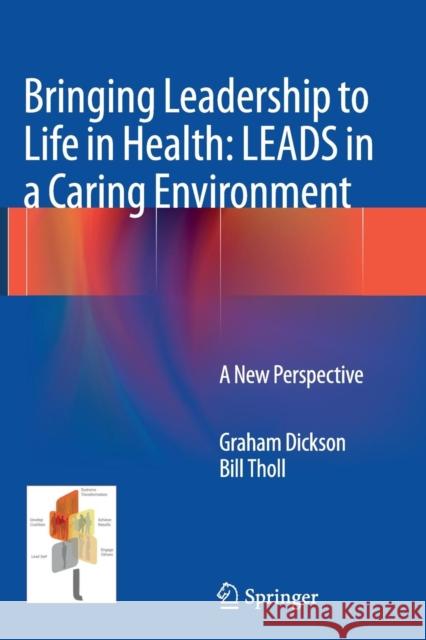Bringing Leadership to Life in Health: Leads in a Caring Environment: A New Perspective » książka
Bringing Leadership to Life in Health: Leads in a Caring Environment: A New Perspective
ISBN-13: 9781447170266 / Angielski / Miękka / 2016 / 190 str.
Bringing Leadership to Life in Health: Leads in a Caring Environment: A New Perspective
ISBN-13: 9781447170266 / Angielski / Miękka / 2016 / 190 str.
(netto: 306,68 VAT: 5%)
Najniższa cena z 30 dni: 308,41
ok. 22 dni roboczych
Bez gwarancji dostawy przed świętami
Darmowa dostawa!
Globally, the health sector faces significant demands for reform and improvement to meet the needs of the 21st Century. To achieve that goal, highly sophisticated and capable leaders are required across all dimensions of the health system. This book describes the key challenges that demand reform, why better leadership is the source code for better system performance, and the issues that stand in the way of getting that leadership. It includes substantive treatment of the modern democratic challenges that healthcare leaders face; and the essence of what it means to be a leader in today's world. The essence of leadership itself is described, and the case made for the need for people to use the workplace as the place to develop leadership rather than relying solely on formal programs. It will also outline a self-directed learning process that any individual leader--citizen, clinician, or senior executive--can use to develop their own leadership capability, and thus become more active as a leader of change. This book addresses the need for leaders to think on a system-wide scale. A second part of the book focuses primarily on the Canadian Health system and LEADS in a Caring Environment capabilities framework, and the link between LEADS and frameworks in Australia and the UK. LEADS was developed through a partnership between members of the Healthcare Leaders Association of British Columbia and the Canadian College of Health Leaders, the Canadian Health Leadership Network and Royal Roads University. Currently it is stewarded by a not-for-profit collaboration that has endorsed LEADS as an evidence-informed set of national expectations for Canadian health leaders. LEADS has been endorsed by many health organizations in almost all provinces in Canada as a foundation for their talent management programs in leadership (development and succession planning). The book will address the research foundations for the LEADS framework; how it was developed; the framework's contents; its congruence with other national frameworks, and how LEADS can be used as a model to envisage and plan change.











